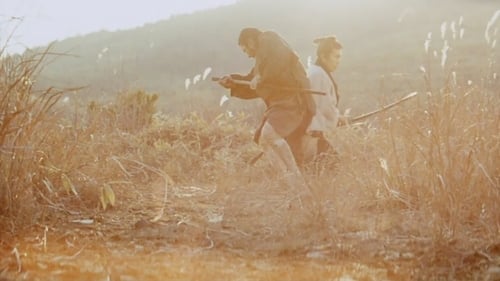
Blind masseur and master swordsman Zatoichi finds a robbed and fatally wounded pregnant woman, whose baby he delivers before she dies. He takes the baby in search of its father and finds the child's aunt, who is about to be forced into prostitution for want of a payment the dead mother was bringing. Zatoichi determines to save the woman from her cruel fate.

A former soldier, reduced to working at a restaurant post-war, becomes a contract killer for the yakuza gangs he's in contact with.

Abare inu is a 1965 action-comedy film directed by Kazuo Mori. It is the fourth film in the series.

[Period covered: 1595-1600] Third film in the famous shinobi no mono series. We last saw ninja Ishikawa Goemon (Raizo Ichikawa), as he was about to be boiled alive. But a good ninja is both hard to find, and even harder to kill. With the help of the enigmatic Hattori Hanzo, Goemon lives to skulk another day, and sets his sights on bringing down the warlord who tried to turn him into soup – Toyotomi Hideyoshi. And as always, in the background, the suble hand of Tokugawa Ieyasu is pulling strings as he plots to rule all of Japan!
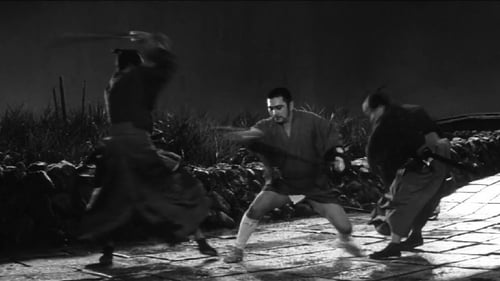
Returning to the village where a year before he had killed Hirate, a much-admired opponent, Zatoichi encounters another swordsman and former rival in love.
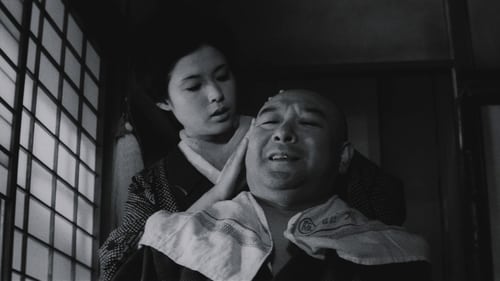
Shôji Yasui
Satoko is a mistress by trade or fate: when her master, the silkscreen artist of the Kohoan Temple in Kyoto, dies, she is given to the temple's lascivious head priest Kikuchi. She is drawn to a melancholy young acolyte, Jinen, who has observed the profligacy of his cruel master and Satoko's utter dependence on the man. Jinen is both fascinated and disturbed by Satoko's interest in him; he is similarly caught between loathing of Kikuchi and of the dark circumstances of his birth and his own moral weakness. The story unfolds in a dreamlike manner—a flashback inspired by a now-infamous image on a silkscreen in the souvenir shop at the so-called Temple of the Wild Geese.

This is the story of a blind masseur who tricks people, steals, and kills; he is the anti-Zatoichi

The exciting story of Jirocho and his yakuza gang that controlled the area of the Tokaido during the latter days of the samurai era. Awesome fighting from Katsu Shintaro as One-Eyed Ishimatsu highlights this great tale taken from Japanese history!
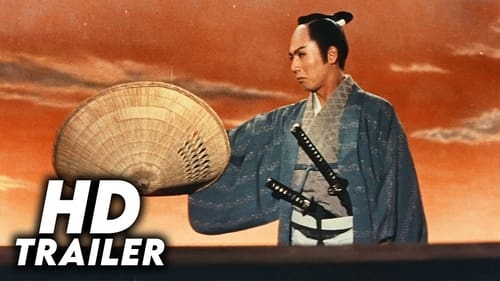
Two amiable samurai wind up on opposite sides of the vendetta between Lord Asano's retainers and the family of Lord Kira that led to the famous revenge of the 47 Ronin.
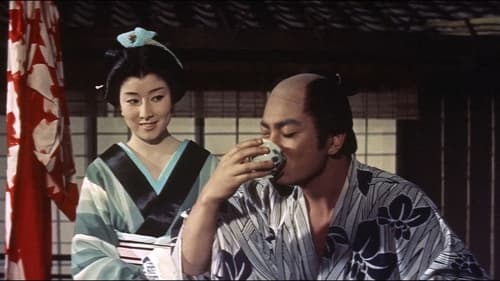
Legendary yakuza Shimizu Jirocho and his 28 henchmen travel the unruly path from a 'Fire Festival' in Akiba to a decisive battle by the Fujigawa.

Film directed by Kenji Misumi.
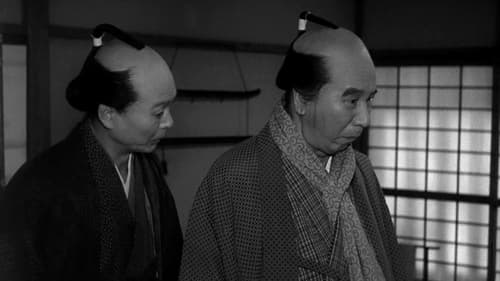
Worker
In 17th century Kyoto, Osan is married to Ishun, a wealthy miserly scroll-maker. When Osan is falsely accused of having an affair with the best worker, Mohei, the pair flee the city and declare their love for each other. Ishun orders his men to find them, and separate them to avoid public humiliation.
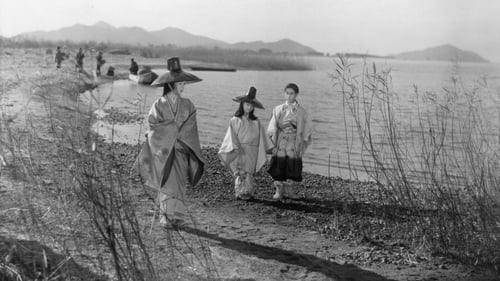
Sado man
森鴎外の同名小説を、八尋不二と依田義賢が共同で脚色し、溝口健二がメガホンをとった文芸作品。特に美術と撮影はレベルが高く、ヴェネチア国際映画祭で銀獅子賞を受賞した。美しいラストシーンは、ゴダールが「気狂いピエロ」において引用したことでも知られる。 平安時代末期、農民を救うため将軍にたてついた平正氏が左遷された。妻の玉木、娘の安寿と息子の厨子王は越後を旅している途中、人買いにだまされ離ればなれになってしまう。玉木は佐渡に、安寿と厨子王は丹後の山椒大夫に奴隷として売られた。きょうだいはそれから十年もの間、奴隷としての生活を続けるが、ついに意を決して逃げ出すことにする。しかし追っ手に迫られ、安寿は厨子王を逃すため池に身を投げるのだった。

頃は天保、所は江戸。折からドッと起る喧嘩のドヨメキの中で、悪浪人数名を向うに廻して群衆の人気を集めている若衆は、小笠原家の一人娘、男嫌いのじゃじゃ馬姫桔梗だった。小笠原家では恐妻家の父君、お狐様を狂信の母君、家老の久松彦右衛門が、松平家の若君麟太郎と桔梗の縁談をまとめようと協議中。

Book-keeper
Shinnosuke is introduced to Shizu as a prospective marriage partner, but he falls in love with her widowed sister Oyu. Convention forbids Oyu to marry because she has to raise her son as the head of her husband's family. Oyu convinces Shinnosuke and Shizu to marry so that she can remain close to Shinnosuke.

Jewel thieves become interested in an invisibility formula invented by Professor Nakazato and want to use his invention to acquire a diamond necklace called the "Tears of Amour."

A 1946 Japanese film directed by Keigo Kimura.











